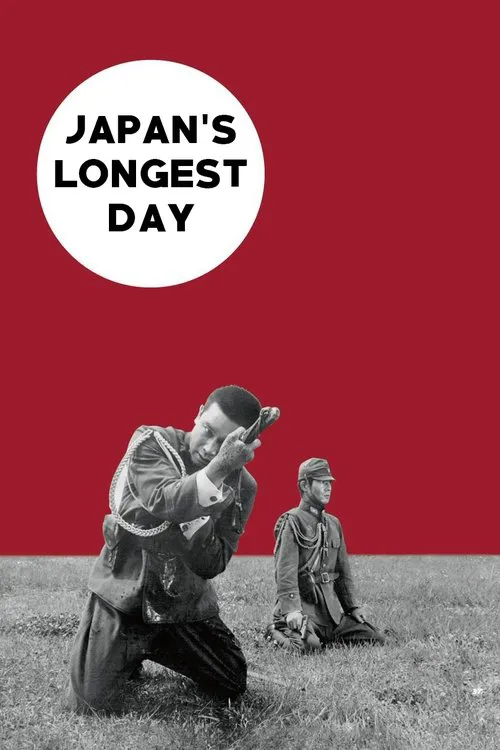Japan's Longest Day

Plot
Japan's Longest Day is a 1967 Japanese war drama film directed by Kihachi Okamoto. Set against the backdrop of a pivotal moment in Japanese history, the film brings to life the tumultuous events unfolding in the final days of World War II. The story unfolds with a sense of urgency and trepidation as the Allies, led by the United States, demand the unconditional surrender of Japan following the devastating atomic bombings of Hiroshima and Nagasaki. The film centers around the intense power struggle between the Japanese military and the civilian government, led by Emperor Hirohito. The Minister of the Army, General Korechika Anami, is a key figure in the military's resistance against surrender. Anami, a seasoned and deeply committed nationalist, is convinced that Japan must fight on, regardless of the cost to the nation's people. His unwavering stance is rooted in a sense of duty to Japan's honor and tradition. However, as the war appears lost, Anami's stance is countered by a growing sense of pragmatism within the military. Many see the futility of their fight and the horrific consequences of continued resistance. The Japanese Navy, in particular, is increasingly disenchanted with the military's inflexibility, recognizing that the Allies' air superiority will eventually lead to Japan's downfall. At the heart of the conflict is Emperor Hirohito himself. As the commander-in-chief of the Japanese military, the Emperor must navigate the treacherous waters of competing interests between his military advisors and the civilian government. Hirohito's dilemma is a personal one; his family, as well as countless innocent civilians, will suffer the consequences of continued conflict. Against this complex backdrop, a coup d'état orchestrated by junior officers within the military is underway. Their goal is to overthrow the Emperor's government and continue fighting the war on their own terms. This plot serves as a ticking time bomb, threatening the very existence of Japan and the lives of its people. As tensions escalate, Anami finds himself caught between his loyalty to the military and his duty to the Emperor. His character serves as a poignant example of the existential crises faced by many high-ranking military officials at the time. Torn between their nationalist ideology and the stark reality of Japan's situation, these individuals must make impossible choices that will haunt them for the rest of their lives. The film's climax revolves around Anami's confrontation with the leaders of the conspiracy to overthrow the Emperor's government. As a senior figure within the military, Anami is tasked with countering the plot and preventing further bloodshed. However, his actions are fraught with danger and moral complexity, as he must choose between his own honor and the fate of Japan. Japan's Longest Day offers a gripping and thought-provoking portrayal of one of Japan's most pivotal moments in history. The film serves as a testament to the human cost of conflict and the devastating consequences of blind loyalty. Through its portrayal of Anami's character and the larger struggle between the military and the Emperor's government, the movie raises profound questions about the nature of duty, honor, and sacrifice. As the film reaches its conclusion, Japan stands at a crossroads. With the Allies closing in and the nation on the brink of collapse, Anami's ultimate decision will seal the fate of Japan and its people. Japan's Longest Day offers a haunting and moving portrayal of this pivotal moment in history, one that will continue to resonate with audiences for generations to come. The film's exploration of Japan's internal power struggles and the human cost of war serves as a powerful reminder of the enduring importance of human life and the devastating consequences of conflict.
Reviews
Recommendations




